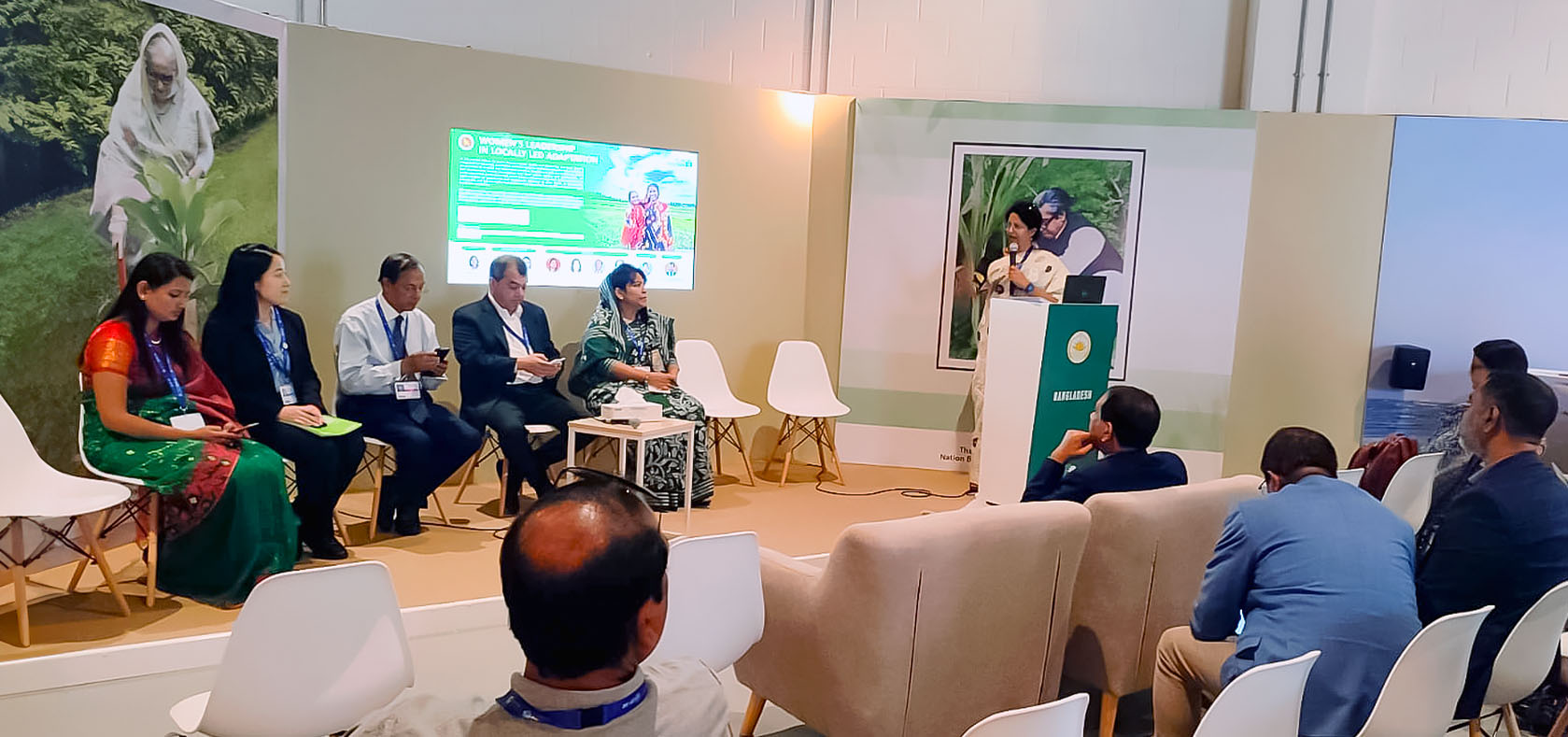Bangladesh highlights women’s leadership in climate adaptation at COP 28
Date:
Author: Dilruba Haider

“We need to see how women’s powerful voice at the decision-making table can be ensured so that they can decide for themselves,” said Saber Hossain Chowdhury, Honorable Member of Parliament and Special Envoy of the Prime Minister of Bangladesh on Climate Change, at a side event organized during the Climate Change conference, COP 28, in Dubai, United Arab Emirates.
Jointly hosted on 4th December by the Ministry of Environment, Forest and Climate Change and UN Women Bangladesh, the side event titled “Women’s Leadership in Locally led Adaption” discussed climate security, climate finance, women’s leadership, and climate justice.
At the event, panelists discussed how women’s health is negatively impacted by climate change due to the harsh working environment caused by floods and salinity caused by sea levels rise, amongst other climate change effects. The participants also highlighted how women face increased risk of gender-based violence as they have to fetch drinking water from a far and how their reproductive health is severely affected due to high salinity caused by climate change. In this regard, women’s organizations shared their experiences on supporting local women to tackle those issues. Discussion also included gender-responsive just transitions, enhancing women’s access to technologies like solar, digital and greenhouse as well as collecting gender disaggregated environmental data.
In addition to Mr. Chowdhury, the event was attended by Dr. Farhina Ahmed, Secretary of the Ministry of Environment, Forest and Climate Change; Dr. Mizan R. Khan, from the International Centre for Climate Change and Development; Jannatul Mouwa, from the youth feminist organization Bindu Nari Shangathan; and Qing Wang, Gender and Climate Change Programme Officer at UN Women China, along with other government officials, climate change professional and experts.
Dr. Khan pointed out that 70 per cent of household expenditures done by women are done for the family welfare, which only emphasizes the critical need of engaging women in climate adaptation and financing for building community resilience.
Ms. Wang stressed that 70 per cent of agriculture work is done by women in China therefore it is important to promote their leadership and increase their access to technology including e-commerce and green house technologies, particularly in drought prone areas, since greenhouse technologies can protect crops.
Dr. Ahmed highlighted the approved ‘Climate Change and Gender Action Plan’ (2023) of Bangladesh, which is expected to help making the government’s climate change adaptation programmes more gender responsive. She also noted that the ministry is willing to work for vulnerable women through women-led organizations.
In his closing remarks, Mr. Chowdhury, firmly uttered that it’s critical to understand how to harness the potential and strength of women for climate change adaptation. He also reiterated the importance of recognizing women’s unpaid care-work while stating that Bangladesh will be the first country to recognize women’s unpaid care work value in the country’s gross domestic product (GDP).